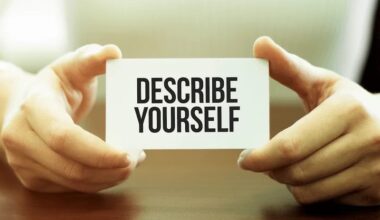27 Formal Synonyms for “that works for me” That Enhance Communication
Have you ever been under pressure to sound a little more polished and professional when drafting an email or during a meeting? Everybody has been there!
Formal communication can make all the difference, whether you’re attempting to impress your boss, communicate effectively with a client, or just aim to elevate your everyday contacts.
Think about it: in a world where first impressions are everything, using the right language can set you apart. That’s why we’re diving into the world of formal synonyms. Specifically, we’re here to replace that casual “that works for me” with more refined alternatives.
In this article, we’ll explore 27 formal synonyms for “that works for me.” These phrases will not only enhance your communication but also boost your confidence in professional settings.
So, let’s get started on expanding your vocabulary and making a lasting impression with your words!
Why Formal Language Matters
Let’s talk about formal language and why it’s such a big deal, especially in professional and academic environments. You might wonder, “Why can’t I just speak the way I normally do?” Well, there are a few good reasons.
First off, formal language sets the tone for respect and professionalism. It’s like dressing up for an important event. Just as you wouldn’t wear flip-flops to a job interview, you wouldn’t want to use overly casual language in a business meeting or an academic paper.
Formal language shows that you’re taking the situation seriously and that you respect the people you’re communicating with.
Let’s look at an example now to see this in operation. Consider yourself emailing a prospective customer regarding a proposition.
“Hey, that sounds good to me,” is one thing you could say, but it might seem too casual. You may state, “That proposal is satisfactory and aligns with our objectives,” as an alternative. Do you notice the difference?
The latter seems more polished and conveys that you’ve given their suggestion significant thought.
Enhancing Clarity and Professionalism
Alright, let’s get into the juicy stuff: the benefits of using formal synonyms. You might be thinking, “Do I really need to swap out my everyday phrases for something more formal?” The answer is a resounding yes! And here’s why.
First and foremost, formal synonyms enhance clarity. Think of it as switching from a blurry camera to one with crystal-clear focus. When you use precise, formal language, there’s no room for misinterpretation.
Everyone knows exactly what you mean. For example, instead of saying, “Yeah, that’s cool,” which can be vague and open to interpretation, you could say, “That is satisfactory.” The latter leaves no doubt about your approval.
But it’s not just about clarity; it’s also about professionalism. Imagine you’re in a board meeting discussing project plans. If you say, “That works for me,” it might get the point across, but it lacks the gravitas that the situation demands.
Now, if you say, “That aligns with our objectives,” you’re not only clearer but also projecting confidence and professionalism. It’s like wearing a well-tailored suit instead of jeans – it just fits the occasion better.
Expand Your Vocabulary with These Alternatives
Ready to elevate your communication game? Here’s a list of 27 formal synonyms for “that works for me,” complete with explanations and example sentences to help you incorporate them seamlessly into your professional and academic conversations.
- Acceptable
- Explanation: Meets the required standards.
- Example: “Your proposal is acceptable to the team.”
- Agreeable
- Explanation: Pleasing and satisfactory.
- Example: “The suggested timeline is agreeable to our schedule.”
- Satisfactory
- Explanation: Adequate and fulfilling the requirements.
- Example: “The results of the study are satisfactory for our purposes.”
- Suits Me
- Explanation: Convenient and acceptable.
- Example: “The meeting time suits me perfectly.”
- That is Acceptable
- Explanation: Meets the criteria.
- Example: “That is acceptable, and we can proceed with the plan.”
- That is Agreeable
- Explanation: Suitable and pleasing.
- Example: “That is agreeable to all parties involved.”
- That is Suitable
- Explanation: Appropriate and fitting.
- Example: “The proposed venue is suitable for our event.”
- That is Satisfactory
- Explanation: Meets the required standards.
- Example: “That is satisfactory and meets our expectations.”
- That Sounds Good
- Explanation: Appears to be pleasing and acceptable.
- Example: “Your idea sounds good, and we should move forward.”
- That Sounds Suitable
- Explanation: Appears to be appropriate.
- Example: “Your solution sounds suitable for the issue at hand.”
- That Seems Suitable
- Explanation: Appears to be fitting and appropriate.
- Example: “That seems suitable for the project requirements.”
- That Seems Appropriate
- Explanation: Appears to be fitting and proper.
- Example: “Your suggestion seems appropriate given the circumstances.”
- That Seems Acceptable
- Explanation: Appears to meet the criteria.
- Example: “That seems acceptable to everyone in the meeting.”
- That Appears Satisfactory
- Explanation: Seems to meet the required standards.
- Example: “That appears satisfactory for our needs.”
- That Appears Suitable
- Explanation: Seems to be fitting and appropriate.
- Example: “That appears suitable for the upcoming presentation.”
- That Fits Well
- Explanation: Matches the requirements and is appropriate.
- Example: “The new schedule fits well with our availability.”
- That Fits My Needs
- Explanation: Meets personal requirements.
- Example: “The proposed solution fits my needs perfectly.”
- That Fits the Bill
- Explanation: Meets the requirements or criteria.
- Example: “The software fits the bill for our project needs.”
- That Matches My Expectations
- Explanation: Meets the anticipated standards.
- Example: “Your report matches my expectations exactly.”
- That Aligns with My Plans
- Explanation: Matches the intended plans.
- Example: “The new proposal aligns with my plans for the project.”
- That Aligns with My Goals
- Explanation: Matches the intended goals.
- Example: “The suggested changes align with my goals for the department.”
- That Conforms to My Requirements
- Explanation: Meets the specified requirements.
- Example: “The design conforms to my requirements for the product.”
- That Conforms to My Standards
- Explanation: Meets the specified standards.
- Example: “The quality of work conforms to my standards.”
- That Will Suffice
- Explanation: Adequate to meet the needs.
- Example: “Your explanation will suffice for our understanding.”
- That Will Do
- Explanation: Adequate and satisfactory.
- Example: “Your proposal will do for our purposes.”
- That Will Serve the Purpose
- Explanation: Adequate to fulfill the required function.
- Example: “The interim solution will serve the purpose until we find a permanent fix.”
- That Will Meet the Requirements
- Explanation: Adequate to fulfill the specified requirements.
- Example: “The new policy will meet the requirements of the regulation.”
With these 27 formal synonyms in your vocabulary arsenal, you’ll be ready to communicate with clarity and professionalism in any setting. Remember, the way you phrase your agreement can significantly impact how you’re perceived, so choose your words wisely!
Applying Formal Synonyms in Various Scenarios
Alright, let’s bring these formal synonyms to life! Knowing the words is great, but understanding when and how to use them can make all the difference.
Let’s explore some everyday scenarios where these synonyms can come in handy, from business meetings to academic settings and formal emails.
- Business Meetings
Picture yourself in a business meeting. Your team is discussing a new project timeline, and you want to convey your agreement in a way that sounds professional and thoughtful.
- Scenario: The project manager suggests a timeline that seems reasonable to you.
- Informal: “Yeah, that works for me.”
- Formal: “That timeline is agreeable to me.”
Using “agreeable” here shows that you’ve considered the suggestion carefully and that you find it suitable.
- Academic Settings
Now, imagine you’re in an academic environment, perhaps discussing a group project or responding to a professor’s feedback. It’s crucial to sound respectful and precise.
- Scenario: Your professor proposes a different approach to your research.
- Informal: “Sure, that’s fine.”
- Formal: “That approach appears suitable for our research objectives.”
In this case, “appears suitable” indicates that you’ve thoughtfully evaluated the suggestion and agree with it based on its merits.
- Formal Emails
Let’s move to formal emails. Whether you’re communicating with a client, a colleague, or a superior, the way you phrase your agreement can set the tone for your professionalism.
- Scenario: A client proposes a change to the project scope.
- Informal: “Sounds good to me.”
- Formal: “That change aligns with our goals and is acceptable.”
Here, “aligns with our goals and is acceptable” not only shows agreement but also connects the change to the broader objectives, demonstrating a strategic mindset.
By using these formal synonyms appropriately, you can communicate more clearly and professionally, enhancing your interactions in various settings.
So, the next time you’re in a meeting, drafting an email, or discussing a project, remember these phrases. They’ll help you convey your agreement with confidence and precision, leaving a positive impression on your colleagues, clients, and professors.
Tips for Transitioning to Formal Language
Ready to make the leap from casual to formal language? It might feel a bit daunting at first, but with some practical tips and a bit of practice, you’ll be speaking and writing like a pro in no time. Here are some strategies to help you incorporate formal synonyms into your daily communication.
- Read Formal Writing: Immerse yourself in formal language by reading academic papers, business reports, or professional articles. Pay attention to how language is used and try to incorporate similar phrases into your own communication.
- Listen and Observe: Observe how professionals and academics speak in meetings, presentations, or lectures. Take note of the phrases and language structures they use.
- Seek Feedback: Ask for feedback from colleagues, mentors, or friends. They can provide insights into how you can improve and make your formal communication more natural.
- Be Patient: Transitioning to formal language takes time and practice. Don’t be discouraged if it feels awkward at first. The more you practice, the more confident you’ll become.
By incorporating these practical tips into your daily routine, you’ll gradually become more comfortable with formal language. Whether you’re in a meeting, writing an email, or discussing a project, these strategies will help you communicate with clarity, professionalism, and confidence.
Conclusion
Let’s wrap things up! We’ve explored the importance of formal language and how it can enhance your communication, whether you’re in a business meeting, writing an email, or discussing a project in an academic setting. Using formal language sets the right tone, enhances clarity, and boosts your credibility, making your interactions more professional and impactful.
So, what’s next? It’s time to put these tips into practice. Start incorporating these formal synonyms into your daily conversations, emails, and meetings. The more you use them, the more natural they’ll become, and the more polished your communication will be.
Call to Action
Now that you’ve seen the power of formal language and how it can transform your communication, it’s time to take action! Start practicing these formal synonyms in your daily interactions. Challenge yourself to use at least one new phrase each day, whether it’s in a meeting, an email, or a conversation with a colleague.
Here are a few ways to get started:
- Set Daily Goals: Aim to replace common informal phrases with their formal counterparts.
- Role-Play with Friends: Practice scenarios where you can use these new phrases.
- Write and Review: Draft emails or documents using formal language and review them for clarity and professionalism.
Remember, the more you practice, the more natural and confident you’ll become. So, don’t wait—start enhancing your communication skills today and watch as your professionalism and credibility soar!





